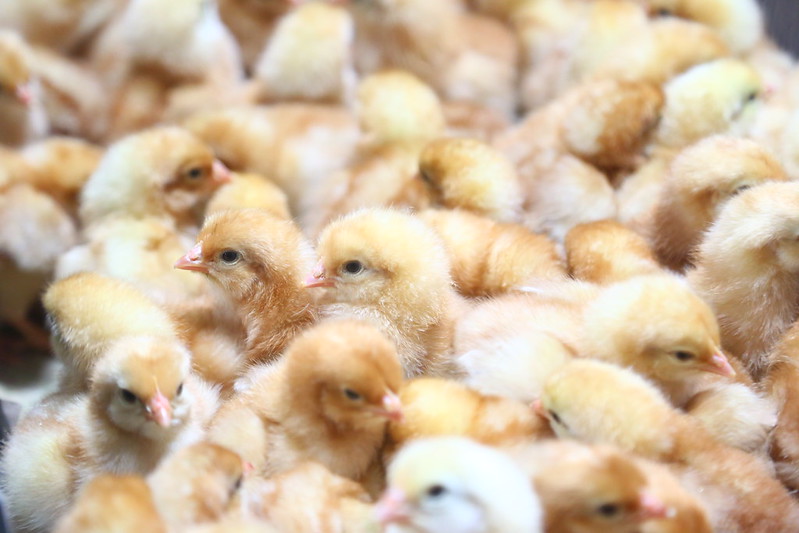Avian influenza confirmed in Oklahoma; extension recommends biosecurity measures for poultry producers
Oct. 18, 2023
By Ryan McGeeney
U of A System Division of Agriculture
Fast Facts:
- H5N1 currently detected in eight states
- Five simple measures can significantly reduce risk to flocks
(312 words)
LITTLE ROCK — Highly pathogenic avian influenza H5N1 has been detected in poultry flocks in eight states over the past few months, most recently in Carter County, Oklahoma, about 300 miles from the Arkansas border.
In 2022-2023, the virus was confirmed in 47 states, the largest recorded outbreak of HPAI. Currently, it has been confirmed in North Dakota, South Dakota, Idaho, Minnesota, Montana, Colorado and Oklahoma.
Dustan Clark, extension poultry health veterinarian for the University of Arkansas System Division of Agriculture, said Tuesday the disease is present in wild waterfowl, and that the current fall migration poses risks to both commercial and small hobby flocks.
“It’s very important that commercial growers follow their integrators’ biosecurity protocols and report any problems to their service tech or company veterinarian,” Clark said.
Clark recommended five simple biosecurity measures to help keep small flocks in Arkansas safe:
- Keep birds in pens covered with roofs or tarps to prevent exposure to wild bird feces/droppings and to keep poultry away from any pond or other water source that wild waterfowl may visit.
- Keep facilities and equipment clean and in good repair. Change feed and water frequently.
- Quarantine and isolate any new or sick birds from otherwise healthy poultry (minimum of three weeks).
- Keep unnecessary visitors away and keep a record of all necessary visitors. Don’t let visitors come in contact with flocks. If you visit an area where there are waterfowl or poultry, do not visit your own poultry until you change clothes, shoes and wash your hands.
- Recognize signs of illness in poultry and report unusual signs to your local veterinarian, local county extension agent, extension poultry veterinarian, state veterinarian, U.S. Department of Agriculture hotline (1-866-536-7593) or Arkansas AI hotline (501-823-1746).
“It is very important that we do all we can to assist in protecting our own flocks and our neighbors’ flocks,” Clark said.
To learn about extension programs in Arkansas, contact your local Cooperative Extension Service agent or visit www.uaex.uada.edu. Follow us on Twitter and Instagram at @AR_Extension. To learn more about Division of Agriculture research, visit the Arkansas Agricultural Experiment Station website: https://aaes.uada.edu/. Follow on Twitter at @ArkAgResearch. To learn more about the Division of Agriculture, visit https://uada.edu/. Follow us on Twitter at @AgInArk.
About the Division of Agriculture
The University of Arkansas System Division of Agriculture’s mission is to strengthen agriculture, communities, and families by connecting trusted research to the adoption of best practices. Through the Agricultural Experiment Station and the Cooperative Extension Service, the Division of Agriculture conducts research and extension work within the nation’s historic land grant education system.
The Division of Agriculture is one of 20 entities within the University of Arkansas System. It has offices in all 75 counties in Arkansas and faculty on five system campuses.
The University of Arkansas System Division of Agriculture offers all its Extension and Research programs to all eligible persons without regard to race, color, sex, gender identity, sexual orientation, national origin, religion, age, disability, marital or veteran status, genetic information, or any other legally protected status, and is an Affirmative Action/Equal Opportunity Employer.
# # #
Media Contact:
Ryan McGeeney
rmcgeeney@uada.edu
@Ryan_McG44
501-671-2120
